Can Termites in your House Make you Sick?
I’ve often wondered about the hidden dangers in my home, including bills for pest and termite control. Can termites make you sick? It’s a question many homeowners ask, especially when they discover these pests lurking in their walls. Termites are notorious for causing structural damage, but their impact on health is less discussed.
Historically, these insects, known for their bills, have been around for millions of years, quietly munching away at wood in termite control. While they don’t bite or sting, their presence can lead to allergic reactions or asthma issues due to the dust and debris they create, highlighting the importance of bills pest termite control. Understanding this connection is crucial for maintaining a healthy living environment, including bills for pest and termite control. In this post, I’ll explore the health risks associated with termites and what you can do to protect yourself and your family from potential harm.
What Are Termites?
Types of Termites and Their Characteristics
Several types of termites exist. The most common species include subterranean termites, drywood termites, and dampwood termites. Each type has unique traits and behaviors.
Worker termites are responsible for feeding the colony. They have soft bodies and lack wings. Soldier termites protect the colony but are also wingless. Winged termites swarm during mating season, usually in the spring or early summer. Their antennae are straight and segmented, distinguishing them from ants.
Although termite bites are rare, they can cause allergic reactions in sensitive individuals. Symptoms may include itchiness, swelling, and redness around the bite area, which may require bills pest termite control. I once experienced a minor reaction after being bitten by a termite while inspecting my home. This experience made me aware of how even small pests can affect our well-being.
Chemical exposure also poses risks after treatment for termites. Surviving termites may carry chemicals that can irritate the skin or respiratory system. Proper precautions during and after treatment help reduce these risks, including bills for pest termite control.
Common Habitats and Behavior
Termites thrive in various environments. They prefer damp wood, soil, and decaying plant matter. These habitats provide necessary moisture for survival.
Termite droppings, known as frass, can contribute to respiratory issues when disturbed. In my case, I noticed increased allergy symptoms when cleaning areas with old termite damage. Dust from their droppings mixed with mold can trigger asthma attacks for some individuals, highlighting the need for bills on pest termite control.
Airborne particles from termites irritate the respiratory system as well. Breathing in these particles may lead to coughing or difficulty breathing. People with pre-existing conditions should take extra precautions when dealing with infestations, including bills for pest and termite control.
Understanding termite behavior helps in managing their impact on health. Regular inspections can prevent infestations before they start. Homeowners should be aware of potential signs, such as mud tubes or discarded wings, to avoid bills for pest termite control.
Termite Infestation: A Silent Threat
How Termites Infiltrate Homes and Go Unnoticed
Termites often enter homes without detection. They can travel through walls and foundations, seeking moisture and wood, which is why bills pest termite control is essential. During these movements, they may carry fungal spores. These spores can affect human health, particularly for those with weakened immune systems.
I have seen how easily a termite colony can thrive in a hidden space. Their activity spreads fungi in the environment, creating potential health risks, including bills pest termite control. Homeowners may not notice until serious damage occurs.
Regular termite inspections are crucial. They help identify termite activity before it escalates into a heavy infestation. Ignoring signs can lead to severe consequences for health, property, and bills related to pest termite control.
Signs of an Infestation to Look Out For
Several indicators reveal the presence of termites. The most alarming sign is visible damage to wooden structures, bills pest termite control. Heavy termite infestations can compromise the integrity of homes. This damage poses significant structural risks.
Another danger arises from termites chewing through electrical wiring. This behavior increases the risk of fire hazards. I remember a case where a home caught fire due to undetected termite damage in the wiring.
Homeowners should also be vigilant about other signs of termite activity. Look for mud tubes along walls or discarded wings near windows and doors. These clues indicate that a termite colony is nearby.
The potential for accidents increases with weakened infrastructure. A compromised structure can lead to falls or injuries. It’s essential to act quickly if you suspect an infestation.
Awareness of these warning signs can prevent serious consequences. Taking immediate action helps safeguard your home and health.
Do Termites Carry Diseases?
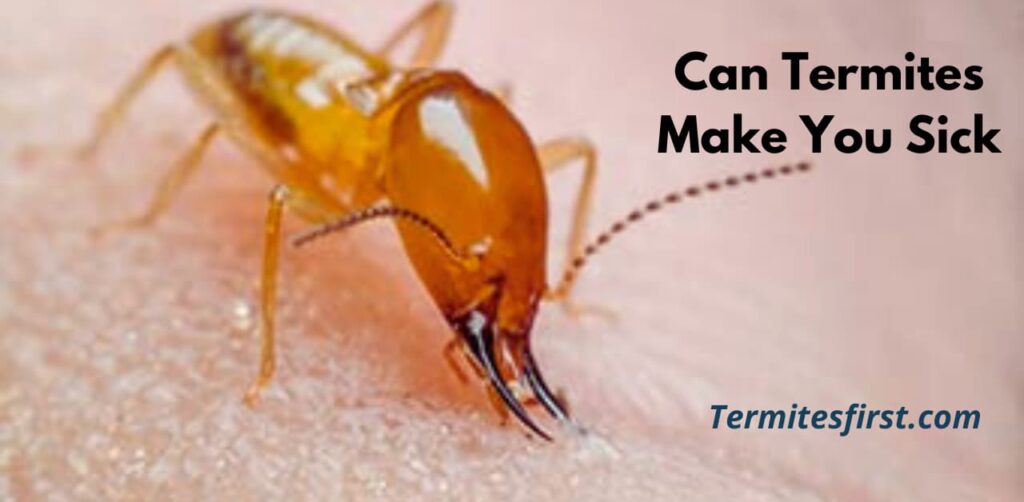
Exploring if Termites Directly Transmit Diseases to Humans
Termites do not directly transmit diseases to humans. They primarily feed on wood and cellulose materials. However, their presence can create conditions that may lead to health issues. For example, termite infestations often result in structural damage. This damage can lead to mold growth, which can affect indoor air quality. Mold spores can trigger allergies and respiratory problems in sensitive individuals.
I have seen how a termite problem can escalate quickly. The stress from dealing with the infestation can be overwhelming. Homeowners often worry about the financial implications of repairs. The cost of extermination and repairs can add up significantly.
Moreover, property value loss due to termite damage is a real concern. Homebuyers usually shy away from properties with a history of infestations. This fear can lead to prolonged anxiety for homeowners trying to sell their homes. Ongoing worries about recurring termite problems create additional emotional stress. I remember feeling anxious every time I heard a creak in my house, wondering if it was a sign of termites returning.
Comparison with Other Pests Like Rodents and Cockroaches
While termites do not pose the same direct health risks as rodents or cockroaches, they still cause significant issues. Rodents are known carriers of diseases such as hantavirus and leptospirosis. Cockroaches can spread allergens and bacteria that may lead to illness. These pests can contaminate food and surfaces in your home.
In contrast, termites mainly affect your property rather than your health. Their role is more about destruction than disease transmission. However, the emotional toll of a termite infestation can feel similar to dealing with other pests.
Many people find themselves comparing the threats posed by different pests. For instance, while rodents might carry diseases, termites can silently undermine your home’s structure over time. This difference highlights the unique challenges each type of pest presents.
Understanding these distinctions helps homeowners make informed decisions about pest control strategies. It also emphasizes the importance of regular inspections to catch any potential issues early on.
Termite Bites: Are They Harmful?
Can Termites Bite Humans?
Termites can bite humans, but it is rare. Most termite species prefer wood and cellulose materials. They do not seek out human flesh for food. However, if threatened, they may bite in self-defense. The bite itself is not usually harmful.
I remember a time when I found termites in my home. I was surprised to learn they could bite. Thankfully, I did not experience any bites during the removal process.
Possible Reactions and Symptoms from Termite Bites
Reactions to termite bites vary among individuals. Some people may experience mild irritation or redness at the site of the bite. Others might have a more noticeable allergic reaction. Symptoms can include itching, swelling, or even hives in sensitive individuals.
In some cases, a bite may lead to an infection if not treated properly. Keeping the area clean is essential to avoid complications. If symptoms persist or worsen, it is advisable to consult a healthcare professional.
I once had a friend who was bitten by termites while camping. He developed a small rash that lasted a few days. It reminded me how everyone reacts differently to insect bites.
Allergies Triggered by Termites
Can Termites Trigger Allergic Reactions?
Termites can indeed trigger allergic reactions in some individuals. These reactions often stem from the droppings, saliva, and body parts of the insects. When these materials become airborne, they can act as allergens.
I have seen firsthand how sensitive people can react to these allergens. In my experience, even minor infestations can lead to significant discomfort for those affected.
Research indicates that exposure to termites can lead to heightened sensitivity over time. The more one is exposed, the greater the chance of developing an allergy. This process can be gradual and may go unnoticed until symptoms appear.
Common Symptoms of Termite-Related Allergies
Common symptoms of termite-related allergies include sneezing, nasal congestion, and itchy eyes. Some individuals may also experience skin rashes or hives upon contact with the allergens.
In severe cases, asthma attacks may occur. Individuals with pre-existing respiratory conditions should be especially cautious. I remember a friend who developed asthma after living in a termite-infested home for years.
It’s important to recognize these symptoms early. Seeking medical advice can help manage the allergic reactions effectively.
People often overlook the connection between termites and allergies. They focus on structural damage instead of health implications. Understanding this link is crucial for homeowners and renters alike.
Respiratory Issues from Termite Infestation
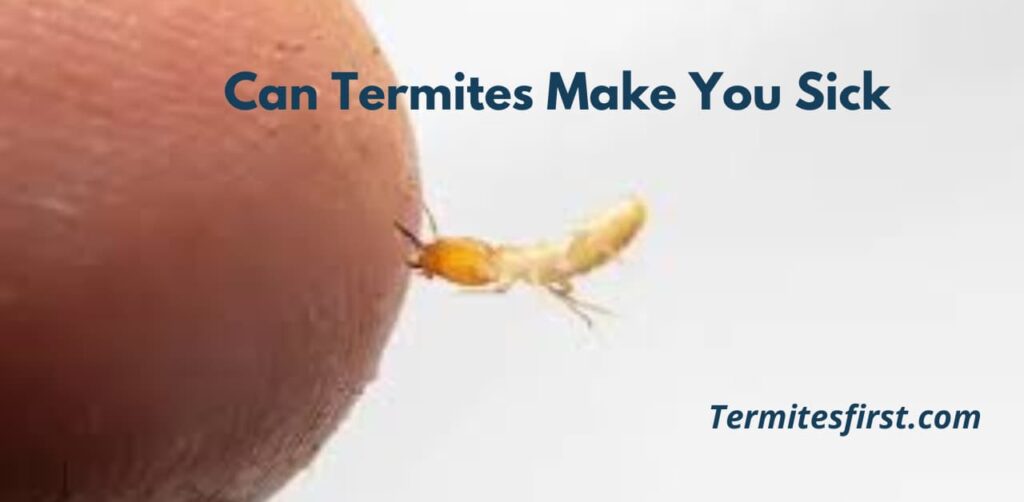
Connection Between Termite Infestations and Respiratory Conditions
Termites can cause respiratory issues in individuals, especially during a severe termite infestation. The presence of termites may lead to increased allergens in the home. These allergens can trigger asthma attacks or worsen existing respiratory conditions.
I remember hearing about a neighbor who suffered from worsening asthma due to a termite problem. Their home had a significant infestation, and they noticed their symptoms escalating. This personal experience highlights the potential health risks associated with termites.
Research indicates that the droppings and body parts of termites can contribute to poor indoor air quality. Exposure to these allergens can result in coughing, sneezing, or other respiratory symptoms. Individuals with pre-existing conditions are particularly vulnerable.
How Ways Termites Affect Indoor Air Quality
Termite droppings, dust, and shed wings significantly impact indoor air quality. These materials can accumulate in hidden areas of a home, such as attics or basements. When disturbed, they release particles into the air. This can create an unhealthy environment for residents.
The accumulation of termite waste can lead to chronic exposure to allergens. Over time, this exposure may result in serious health concerns. I have seen firsthand how persistent allergy symptoms can disrupt daily life. It is crucial to address any signs of infestation promptly.
Homeowners should consider regular inspections to identify potential problems early. Proper termite treatment is essential to mitigate these health risks. However, some homeowners face challenges with termite treatment problems. Sometimes treatments are ineffective, leading to ongoing infestations and continued exposure to allergens.
In summary, understanding the connection between termite infestations and respiratory issues is vital for maintaining good health at home. The impact of termite droppings and debris on indoor air quality cannot be overlooked.
Mold Growth Encouraged by Termites
How Ways Termites Create Tunnels
Termite tunnels create moist environments. These structures trap humidity and moisture, which are perfect for mold growth. As termites consume wood, they also break it down. This process adds further moisture to the surrounding area.
I have seen how quickly mold can spread in damp places. It often appears in corners of basements or behind walls. The hidden nature of termite damage allows both pests and mold to thrive unnoticed.
Termites can also introduce spores into the air. These spores can settle on wet surfaces, leading to mold colonies. The combination of wood debris and high humidity makes it easier for mold to take hold.
Potential Health Hazards of Living in a Mold-Infested Environment
Living in a mold-infested environment poses serious health risks. Mold exposure can lead to respiratory problems, allergic reactions, and other illnesses. Symptoms include coughing, sneezing, and skin irritation. Individuals with asthma or weakened immune systems are particularly vulnerable.
I remember a friend who suffered from chronic allergies after moving into a moldy apartment. Her symptoms improved significantly after remediation efforts were made. This experience highlighted how important it is to address mold issues promptly.
Mold can also produce mycotoxins. These toxins may cause more severe health problems over time. Long-term exposure can result in neurological issues or chronic fatigue syndrome.
People should be aware of the signs of mold growth, such as musty odors or visible spots on walls and ceilings. Regular inspections can help catch infestations early.
In summary, termite activity encourages mold growth by creating damp conditions. Mold poses health risks that can affect anyone, especially those with pre-existing conditions. Addressing these issues early is crucial for maintaining a safe living environment.
Fungal Spores Spread by Termites
Can Termites Spread Fungal Infections Through Wood Decay?
Termites can indeed contribute to the spread of fungal infections. They create conditions that favor wood decay. This decay process encourages fungi to thrive. As they consume wood, termites break it down. This breakdown releases spores into the environment.
In my experience, I have seen how quickly mold can develop in damp areas. When wood becomes wet and decays, it invites unwanted growth. Fungi can lead to health issues for those exposed to them. Allergies and respiratory problems may arise from inhaling these spores.
The connection between termites and fungal infections is clear. The more damage termites do, the more spores are released. These spores can travel through the air, increasing exposure risk. Homeowners need to be aware of this potential threat.
Understanding The Role of Termite Activity in Fungal Spore Distribution
Termite activity plays a significant role in fungi distribution. Their tunneling creates pathways for air circulation. This circulation helps spores disperse beyond their immediate area. Termites also produce moisture as they digest wood. This moisture fosters an ideal environment for fungi.
I remember reading about a study that highlighted this relationship. Researchers found that areas with high termite activity had increased fungal presence. The findings were alarming but informative.
The lifecycle of termites directly affects the spread of spores. As colonies grow, they can affect larger areas of wood. Once the wood decays, it becomes a breeding ground for fungi. Spores can then spread through air currents or contact with surfaces.
Homeowners should monitor their properties for signs of termite damage. Regular inspections can help identify potential problems early. Addressing infestations promptly is crucial to mitigate risks associated with fungal infections.
Skin Irritations Linked to Termites
Skin Reactions Caused by Contact with Termites or their Waste
Identifying skin reactions from termites involves looking for specific symptoms. Rashes often appear as red, itchy patches on the skin. Hives may develop as raised welts that can vary in size and shape. I have noticed that some individuals may not react immediately. Symptoms can take hours or even days to manifest.
In some cases, people may experience swelling around the affected area. This indicates a more serious reaction and requires medical attention. Observing these symptoms is crucial for proper diagnosis and treatment. Consulting a healthcare provider ensures appropriate care.
If you suspect termite exposure, take action quickly. Document any symptoms and seek professional advice if necessary. This proactive approach can prevent further complications.
Asthma Exacerbation and Termite Infestations
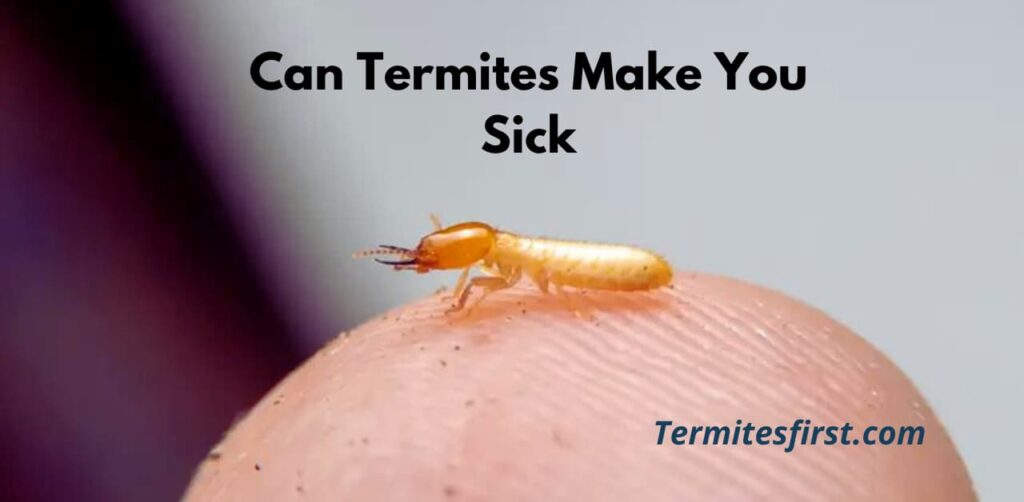
Termite-Related Allergens and their Impact on Asthma Sufferers
Termites can produce allergens that affect individuals with asthma. These allergens come from termite droppings, saliva, and body fragments. When disturbed, these materials can become airborne. This exposure can lead to asthma attacks in sensitive individuals.
I have seen how quickly these allergens can spread in a home. A simple disturbance, like moving furniture, can release them into the air. The impact is often immediate for those with respiratory conditions. Studies show that indoor allergens significantly contribute to asthma symptoms. According to the American Academy of Allergy, Asthma & Immunology, many people with asthma experience worsened symptoms when exposed to these allergens.
Preventative Measures for Individuals with Asthma
Preventing exposure to termite-related allergens is crucial for asthma sufferers. Regular inspections can help identify infestations early. Homeowners should consider sealing cracks and crevices in their homes. This reduces entry points for termites and limits allergen spread.
Maintaining a clean environment also helps. Frequent vacuuming can remove dust and potential allergens. Using high-efficiency particulate air (HEPA) filters in vacuums is beneficial. I personally find that keeping my living space tidy reduces allergy flare-ups.
Here are some additional steps to take:
- Monitor humidity levels indoors.
- Use dehumidifiers in damp areas.
- Store firewood away from the home.
- Remove wood debris from around the property.
These measures not only deter termites but also improve overall air quality. Asthma sufferers should be proactive about their environments. Awareness of potential triggers can minimize health risks associated with termite infestations.
Termites as Carriers of Pathogens
Investigating Whether Termites Can Carry Harmful Bacteria or Viruses
Termites can harbor harmful bacteria and pathogens. Research indicates that these insects may carry bacteria such as Salmonella and E. coli. These pathogens often thrive in their gut, which contains organic material from decaying wood.
I find it concerning that something as small as a termite could potentially affect health. Their presence in homes raises questions about the hygiene of the environment. Termites do not bite humans, but they can contaminate surfaces with their droppings. This contamination poses risks, especially for individuals with weakened immune systems.
Studies suggest that contact with termite droppings can lead to respiratory issues. Inhaling particles from infested areas might trigger asthma attacks or other allergic reactions. My own experience with allergies makes me wary of any pests in my living space. It’s essential to maintain cleanliness to minimize exposure to potential pathogens carried by termites.
Case Studies and Research Findings on Termite-Related Infections
Research has documented cases linking termites to various health problems. A study published in 2015 examined the relationship between termite infestations and respiratory illnesses. The findings showed a significant correlation between high levels of termite activity and increased hospital visits for asthma-related issues.
Another case involved residents in a termite-infested building. They reported respiratory symptoms after prolonged exposure to droppings and debris. The investigation revealed elevated levels of mold, which thrived alongside the termites. Mold can also exacerbate respiratory conditions, adding another layer of risk.
Researchers have identified specific bacterial strains associated with termites. A 2019 study highlighted how these insects could serve as vectors for certain pathogens. The study emphasized the importance of controlling termite populations to prevent health complications.
These findings underscore the need for proper pest management strategies. Homeowners should consider regular inspections and treatments for termites. I believe staying informed about potential health risks is crucial for maintaining a safe living environment.
Termite Fumigation: Health Risks During and After Treatment
Dangers Associated with Termite Treatment Chemicals
Fumigation involves using chemicals that can pose health risks. Pesticides like sulfuryl fluoride are common in this process. These substances can irritate the respiratory system. Symptoms may include coughing, headaches, or nausea.
I remember a friend who experienced these effects after fumigation. She felt dizzy and had trouble breathing for days. This highlights the importance of understanding potential dangers.
Exposure to these chemicals can lead to more severe health issues over time. Long-term exposure might cause neurological damage or other serious conditions. Pregnant women and children are particularly vulnerable. They should avoid areas treated with these chemicals until it’s safe.
Safe Practices for Reentering a Fumigated Home
After fumigation, safety is crucial when reentering your home. Wait for the professionals to declare it safe before returning. They will provide specific instructions on when you can go back inside.
Once allowed back, open windows and doors to ventilate the space. Fresh air helps dissipate any remaining chemical residues. I always make sure to air out my home for at least 24 hours after treatment.
Check for any lingering odors as well. If you smell strong chemical scents, stay outside until they fade. It’s also wise to wear a mask during initial reentry if you’re sensitive to smells.
Follow the guidelines provided by your pest control service closely. They often include recommendations on cleaning surfaces and items exposed during treatment. This ensures that any residual chemicals do not pose a risk to your health.
The Impact of Termite Droppings (Frass)
What is Frass and How it Affects Indoor Environments
Termite droppings, known as frass, consist of tiny wood particles mixed with digested cellulose. These droppings accumulate in areas where termites infest. I often notice this when inspecting properties for potential termite damage.
Frass can appear similar to sawdust or coffee grounds. Its presence indicates ongoing termite activity. This can signal a significant problem within the structure of a building. The accumulation of frass can also lead to poor indoor air quality. As it breaks down, it releases dust particles into the air. This dust may irritate the respiratory system.
Indoor environments become compromised when frass is present. People with allergies or asthma may experience heightened symptoms. I have seen firsthand how sensitive individuals react negatively to such conditions. Regular cleaning helps mitigate these effects, but it does not eliminate the source of the problem.
Possible Health Issues Related to Termite Frass
Exposure to termite droppings can lead to various health concerns. Some individuals may develop allergic reactions due to inhaling frass particles. Symptoms include sneezing, coughing, and nasal congestion. In severe cases, it can trigger asthma attacks.
Frass can harbor mold spores if moisture is present. Mold growth can worsen respiratory issues and cause skin irritations. I recall a situation where a family faced continuous health problems due to undetected mold from termite activity. They had no idea that their ongoing illness was linked to their home’s condition.
The potential for secondary infections exists as well. If an individual has pre-existing health issues, exposure to frass may exacerbate these conditions. Prolonged exposure can lead to chronic respiratory problems over time.
Preventive measures are crucial in addressing these risks. Regular inspections by pest control professionals help identify termite infestations early on. Keeping homes dry and well-ventilated reduces the likelihood of mold growth associated with frass.
Airborne Particles Released by Termite Damage
How Termites Contribute to Indoor Pollution Through Wood Destruction
Termites cause significant termite damage by consuming wood. This destruction creates a range of airborne particles. As they feed, they break down wood into fine dust and debris. I often think about how unnoticed these particles can be until they impact our health.
The waste produced during this process includes termite droppings, known as frass. Frass contains cellulose fibers and can become airborne. When these particles circulate in the air, they contribute to indoor pollution. Over time, this can lead to unhealthy living conditions.
In addition to the immediate damage, structural damage from termites can worsen air quality. The materials in homes often contain mold and other allergens. Termite activity can exacerbate these issues, leading to more pollutants in the air.
Health Risks from Inhaling Termite-Related Dust and Debris
Inhaling dust and debris from termite activity poses health risks. These risks include respiratory issues and allergic reactions. Dust may carry pathogens or allergens that affect sensitive individuals. For example, I have experienced sneezing fits when exposed to dusty environments.
People with asthma or allergies are particularly vulnerable. They may experience increased symptoms due to airborne particles from termite waste. Symptoms can include coughing, wheezing, and difficulty breathing.
Long-term exposure to these particles can lead to chronic health problems. Studies show a link between indoor air quality and respiratory diseases. It is crucial to address any signs of termite infestations promptly.
Homeowners should regularly inspect their properties for signs of termite activities. Early detection can help minimize both structural damage and health risks associated with poor air quality.
To summarize, the relationship between termites and indoor air quality is significant. The dust created by their feeding habits can lead to serious health concerns. Awareness is essential in preventing potential exposure to harmful particles.
Secondary Pests Associated with Termites
Pests that May Follow or Cohabitate with Termites
Termites can attract various secondary pests. Ants often follow termite trails. They seek out the same wood and food sources. Certain beetles also find their way into infested areas. These pests can cause additional damage to structures.
In my experience, I have noticed ants swarming around wood piles in my backyard. The presence of these secondary pests indicates a larger problem. Homeowners should address termite infestations promptly to minimize these risks.
Additional Health Risks Posed by These Secondary Invaders
Secondary pests can introduce further health issues. Some ants may bite or sting when threatened. Their bites can lead to allergic reactions in sensitive individuals. Beetles can also carry bacteria, posing a risk to human health.
Dust from damaged wood can contain harmful particles. This dust may cause respiratory issues when inhaled. It’s important to keep indoor environments clean and free from debris.
I’ve had friends who experienced allergies after noticing an uptick in ant activity at home. They discovered that the nearby termite problem was the root cause of these pests. Addressing both the termites and the secondary invaders helped reduce their symptoms.
Mental Health and Anxiety from Termite Infestation
Psychological Stress and Anxiety Caused by Living with Termites
Termite infestations can lead to significant psychological stress. The constant worry about damage to property creates a sense of unease. Homeowners often feel helpless when faced with the prospect of costly repairs. I remember feeling anxious when I discovered termites in my home. The thought of losing my investment was overwhelming.
Living with the knowledge that these pests are present can trigger anxiety. Individuals may experience heightened levels of stress, leading to insomnia or irritability. Some people develop obsessive behaviors related to cleaning or inspecting their homes for signs of termites. This cycle of worry can affect daily life and relationships.
Impact on Quality of Life and Well-Being
The presence of termites can negatively impact overall quality of life. Daily activities become overshadowed by concerns about pest control and potential damage. Social interactions may decline as individuals avoid inviting friends over due to embarrassment about their situation. I found myself canceling gatherings because I didn’t want others to see my termite problem.
Stress from termite infestations can also lead to physical symptoms. These include headaches, fatigue, and digestive issues. The mind-body connection is strong; emotional distress can manifest physically. For many, this creates a vicious cycle where anxiety worsens health, leading to more anxiety.
Long-term exposure to such stressors may result in chronic mental health issues. Studies show that unresolved pest problems can contribute to depression and anxiety disorders. Seeking professional help becomes essential for those struggling with these feelings.
A proactive approach helps mitigate these effects. Regular inspections and timely treatments can alleviate worries about infestations. Knowing that steps are being taken fosters a sense of control. It’s crucial for homeowners to address not only the physical aspects of pest control but also their mental health needs.
Prevention: How to Avoid Health Risks from Termites
Effective Methods for Termite Prevention
Termite prevention starts with understanding the potential threats. Regular inspections can help identify early signs of infestation. I usually recommend checking for mud tubes and damaged wood. These indicators can signal a problem before it escalates.
Using barrier treatments is another effective method. Chemical barriers can deter termites from entering your home. These treatments should be applied by professionals to ensure proper coverage.
Physical barriers also play a role. Installing metal mesh or sand barriers around the foundation can block termites. This method is particularly useful in new constructions.
Maintaining moisture levels is crucial. Termites thrive in damp environments. Fixing leaks and ensuring proper drainage around your home reduces their appeal.
Home Maintenance Tips to Minimize the Risk of Infestation
Home maintenance plays a significant role in termite prevention. First, keep wood away from direct soil contact. Storing firewood and wooden materials at least 20 feet from your home helps limit access.
Next, inspect gutters and downspouts regularly. Clogged gutters can lead to water pooling near the foundation, creating a perfect habitat for termites. I have found that cleaning these areas biannually prevents issues.
Seal any cracks or gaps in your home’s exterior. Termites can enter through even the smallest openings. My experience shows that caulking windows and doors is an easy fix that pays off.
Landscaping choices matter too. Planting shrubs and trees away from your home reduces risk. Avoid using mulch made from untreated wood near your foundation.
Finally, consider professional pest control services for regular check-ups. These experts can provide tailored advice based on your specific situation.
Addressing a Termite Infestation Safely
Step-by-Step Guide on How to Handle a Termite Problem
Identifying a termite infestation is crucial. Look for signs like mud tubes, discarded wings, or hollow-sounding wood. Once confirmed, act quickly.
Start by removing any wood debris around your home. This includes old furniture and tree stumps. Termites thrive in damp areas. Ensure your home has proper drainage and ventilation.
Next, seal cracks and openings in your foundation. This step prevents future infestations. I remember sealing my basement windows after noticing some damage. It made a significant difference.
Consider using bait systems as a first line of defense. These systems attract termites and eliminate them over time. Monitor the traps regularly to assess activity levels. If you notice increased activity, it might be time to escalate your response.
Professional Treatments vs. DIY Approaches
Professional treatments offer strong solutions for severe infestations. Experts use advanced techniques like liquid pesticides or fumigation. These methods reach hidden colonies effectively.
DIY approaches can work for minor issues. Products like boric acid or diatomaceous earth can help manage small populations. I found that applying these substances in targeted areas reduced termite sightings significantly.
However, DIY methods may not always be sufficient. Termites can hide deep within walls or foundations. Professionals have the tools and experience to tackle these hidden threats.
Weighing the pros and cons is essential when deciding between options.
- Pros of professional treatments:
- Comprehensive assessment
- Long-lasting results
- Access to specialized tools
- Cons of professional treatments:
- Higher costs
- Requires scheduling and waiting
- Pros of DIY approaches:
- Lower initial expenses
- Immediate action possible
- Cons of DIY approaches:
- May not eliminate entire colony
- Requires ongoing monitoring
In my experience, tackling minor issues myself helped save money initially. However, I realized that some infestations require expert intervention for complete eradication.
Conclusion:-
Termites can pose serious health risks that I need to be aware of. From allergies to respiratory issues, their presence can affect my well-being. It’s crucial to understand how termites operate and the potential dangers they bring into my home. Taking preventative measures can significantly reduce these risks.
I recommend staying vigilant and addressing any signs of infestation promptly. Regular inspections and proper treatment can help maintain a healthy living environment. If I suspect termite activity, seeking professional help is essential for safety. Let’s prioritize our health and ensure our homes are free from these pests. Don’t wait—act now to protect yourself and your loved ones from the hidden threats termites may carry.
FAQ’s:-
Termites do not directly transmit diseases to humans. However, they can contribute to health issues through allergens and respiratory irritants.
Termite bites are rare and typically not harmful. Most people experience no reaction, but some may have mild irritation
Termite droppings and body parts can trigger allergic reactions in sensitive individuals, leading to symptoms like sneezing and skin rashes.
Yes, termite infestations can lead to respiratory issues. The dust from their frass and mold growth can aggravate asthma and other conditions.
Fumigation poses health risks if proper precautions aren’t taken. It’s essential to vacate the premises during treatment and follow safety guidelines.
Termites create moist environments through their feeding habits, which can encourage mold growth. Mold spores can lead to various health problems, especially for those with allergies.
If you suspect a termite infestation, contact a pest control professional immediately. Early intervention helps mitigate health risks and property damage.

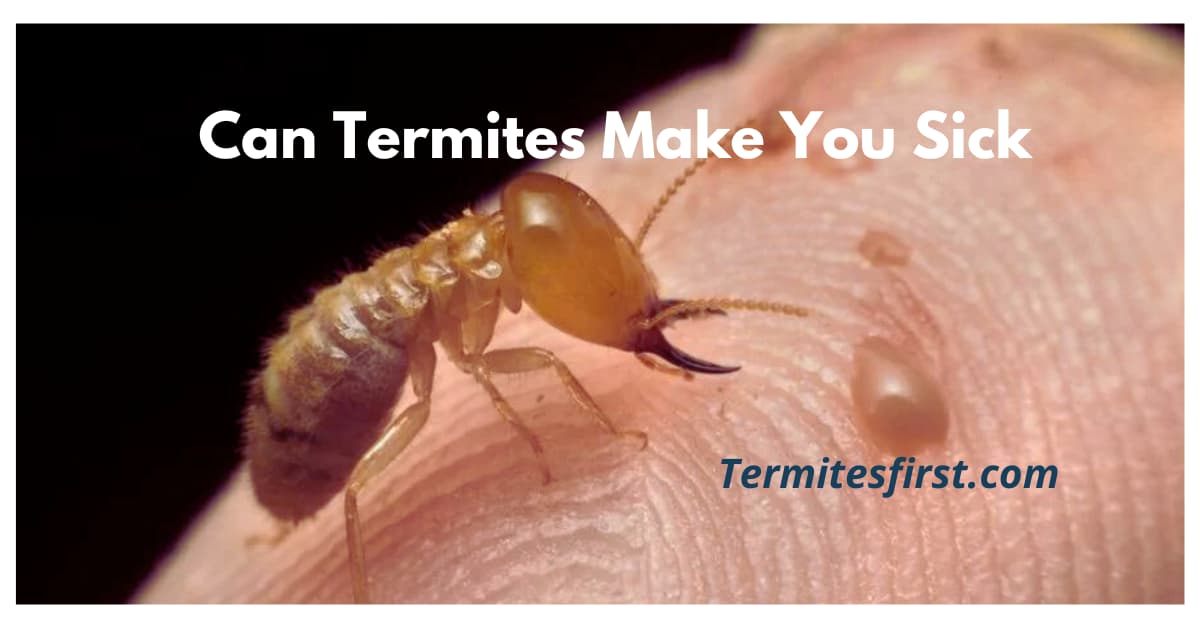
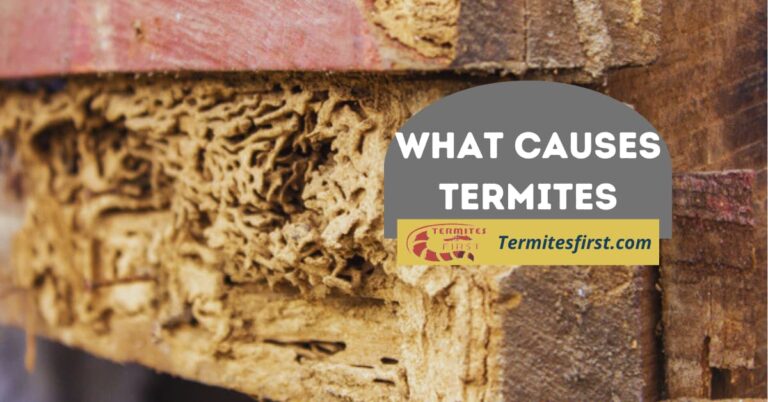




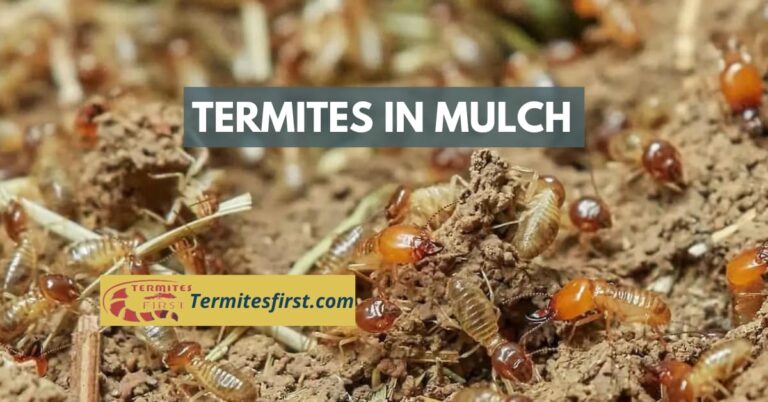
One Comment